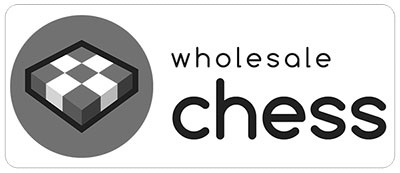Every chess player has done some one-move checkmate puzzles when s/he learn chess. It looks so simple, just one move, why is it so important for beginners?
I can't count how many times when I was watching my beginner students' games, the checkmate was there, they just could not see it. In some games they had checkmate chance many many times, but they never thought about it and never stopped their pieces in the correct squares. I had to work hard to hold back my urge to do something at that moment.
When many pieces are still on the board, some one-move checkmate problems may not be easy, especially when you are playing a live game and nobody gives you a hint. It might take a few seconds to see the checkmate and to verify. If you are under time pressure, the task will be even more difficult. Former World Champion Kramnik missed a one-move checkmate when he played against Deep Fritz.
http://en.chessbase.com/post/man-vs-machine-shocker-kramnik-allows-mate-in-one
Here are a few reasons why a beginner may want to spend time with one-move checkmate.
First, because it's simple, it's easy for beginners to use as a training tool.
Second, it helps train beginners to see things on the board. Vision is critical for chess players at any level. If you don't see things on board, you won't make correct decisions. You have to see one move before you can see two, and three moves, and before you can do long calculation.
Third, it boosts beginners confidence. Because they solve puzzles in one move. The success provides them a positive feedback, and makes them more confident about themselves. Confidence is a big factor in winning chess games.
Fourth, it increases alertness.
Fifth, the basic patterns (Back Rank, Queen mate, Bishop and Rook, Rook and Knight, Bishop Crossfire, etc) help beginners learn calculation in longer tactics combinations.
Even as an advanced player myself, when I don't have time to prepare for a tournament, I just do one-hour of one-move checkmate to sharp my vision, increase my alertness, and refresh my mind.
Chess for Beginners: Elementary Checkmate I
Chess for Beginners: Elementary Checkmate II



 RSS Feed
RSS Feed